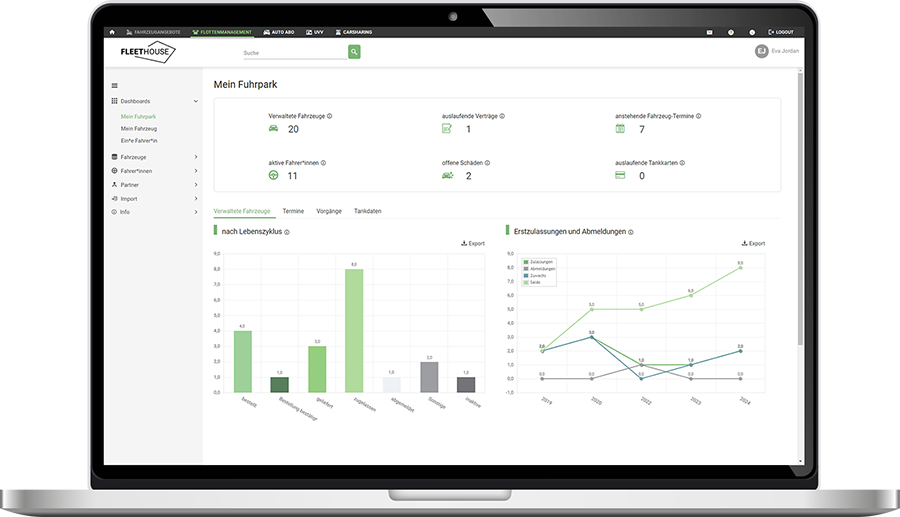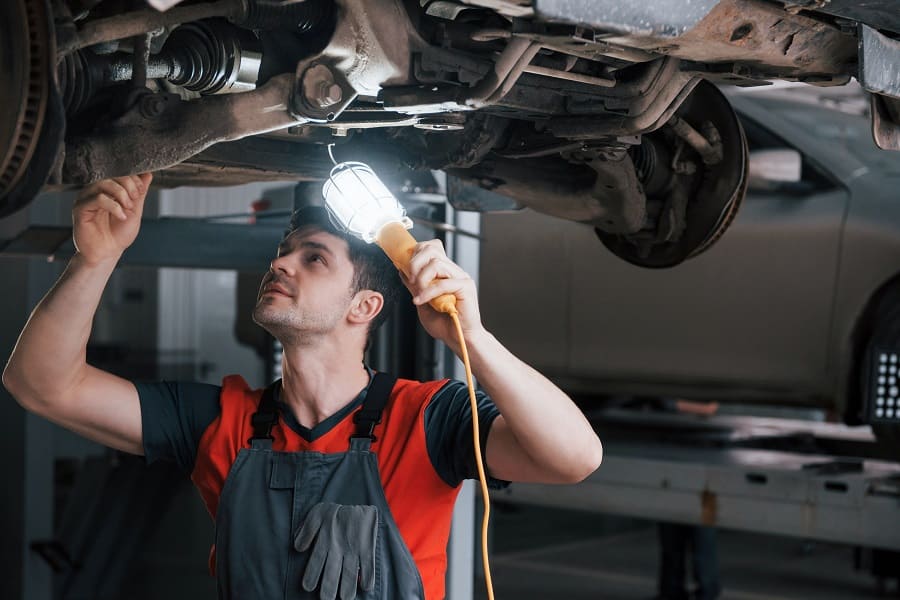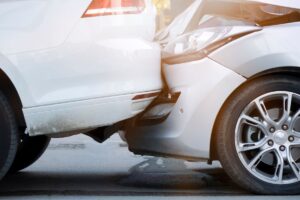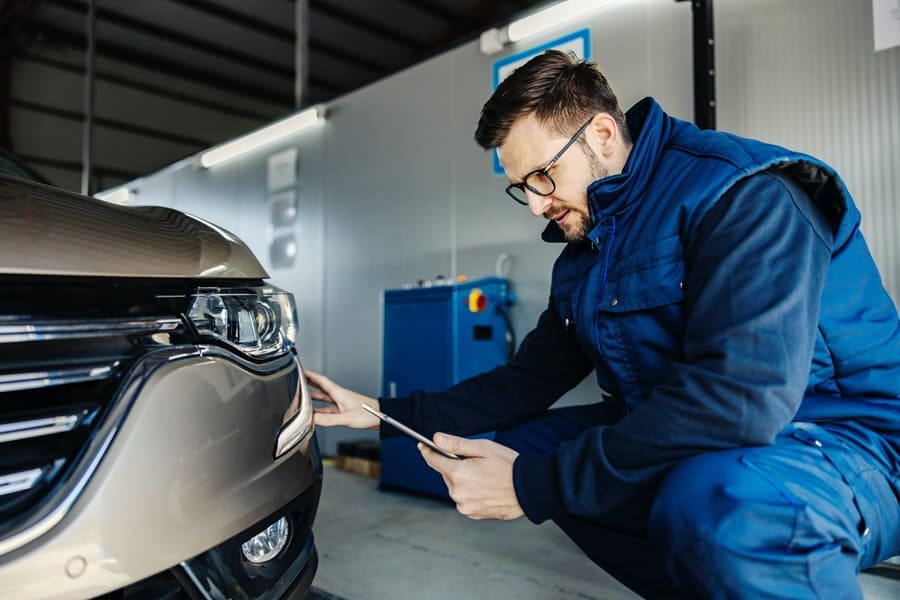Safety in the workplace is a key concern for every employer and employee. For companys with a vehicle fleet, the UVV plays an important role in the day-to-day business. But what does UVV mean? And what is behind the term DGUV? In this blog post, we give you a comprehensive insight into the meaning of UVV, its legal basis and the resulting obligations for fleet managers and employees.
Contents
What is UVV?
Instruct employees safely?
Train your drivers at least once a year in the safe handling of vehicles in accordance with UVV. The best way to do this is via e-learning.
What is the legal basis of the UVV?
The UVV are based on Sections 14-16 of the Seventh German Social Code (SGB VII), which forms the basis for statutory accident insurance in Germany. SGB VII lays down general obligations for employers and insured persons, and the UVV specify these obligations for specific sectors or activities.
From the legal basis to the most important obligations – find out more about the topic of keeper liability in our free guide: Keeper liability in the vehicle fleet
The importance of UVV in the fleet: What role do UVV play in the fleet?
The accident prevention regulations are also very important in the vehicle fleet. This is because vehicles such as trucks, commercial vehicles, forklifts or even the classic company car are part of the workplace and are subject to the § 2 para. 1 of the Ordinance on Industrial Safety and Health (BetrSichV) a work equipment. As with the operation of heavy machinery or electronic devices, drivers must be trained in the safe handling of company vehicles in order to avoid accidents and associated injuries or damage.
The driver instruction according to UVV must
- before each first journey
- with every vehicle change
- and then at least once a year.

Less effort and more safety?
Register with Fleethouse and test the functions of the fleet software free of charge for 30 days.
What is the significance of DGUV Regulation 70?
Construction and equipment
The section on the construction and equipment of vehicles in DGUV Regulation 70 sets out specific requirements to ensure that vehicles are built safely and fitted with the necessary safety equipment. This should minimize the risk of injuries and accidents. This includes, for example, the condition of brakes and wheels, safety-relevant equipment such as airbags or the need for functioning front and rear lights, indicators and brake lights.
Operation
This section regulates the safe operation of company vehicles. This includes, for example, behavior before, during and after the journey or loading and unloading the vehicle. The contents of this section form the basis of driver training in accordance with the UVV.
Examination
DGUV regulation 70 also stipulates that company vehicles must undergo a regular UVV inspection by an expert. This involves checking the roadworthiness and operational safety of the vehicle. As the person responsible for the fleet, you must document the results of the UVV inspection and file them in a verifiable manner. The UVV inspection should not be confused with the main inspection of vehicles, also known colloquially as the TÜV.

UVV significance for employees: What are the obligations for drivers?
It’s not just fleet management that has to ensure safety in the fleet. According to Section 36 of DGUV Regulation 70, employees are also obliged to check the company vehicle for defects and damage before every journey. It is essential whether it is your own company car or a pool vehicle or whether drivers use the vehicles regularly or only occasionally.
The importance of UVV for drivers is therefore also an essential aspect of their everyday work:
(1) The driver must check the effectiveness of the operating and safety devices before the start of each work shift and observe the condition of the vehicle for obvious defects during the work shift.
(2) The driver of the vehicle must report any defects found to the responsible supervisor or, in the event of a change of driver, to the replacement. In the event of defects that jeopardize operational safety, the vehicle driver must cease operation.
For example, the lights and tires must be checked and it must be ensured that the first-aid kit, warning triangle and safety vest are in the vehicle and in working order. The levels of engine oil, fuel and coolant must also be checked. Any defects can be documented using logs and checklists.
How are fleet managers supported in complying with the UVV?
It quickly becomes clear just how important accident prevention regulations are for vehicle fleets. Violations can result in severe penalties in the event of a claim, ranging from fines to the loss of insurance benefits. Digital solutions support you in complying with your obligations and minimize the effort involved.
With the driver instruction e-learning course, you can train drivers in the safe handling of company vehicles, regardless of whether they are in the field, in the office or working from home. The course content is already prepared and can be accessed immediately without prior login. The test results are verifiably documented.
In our article“Electronic driver instruction in accordance with UVV: 7 advantages of an e-learning course“, you can find out more about the benefits of digital driver instruction in accordance with UVV.
Arrange an online consultation appointment
Arrange your personal consultation appointment now. You can easily select a suitable appointment using our booking tool.
FAQ - UVV meaning in the vehicle fleet
UVV is the abbreviation for accident prevention regulations. These include numerous legal regulations and measures aimed at preventing accidents in the workplace and ensuring the safety of drivers and vehicles.
For fleets, the UVV means that vehicles must undergo regular UVV inspections. In this way, defects that endanger operational and road safety can be detected at an early stage. As a fleet manager, you must also ensure that drivers are trained in handling the vehicles. Compliance with the UVV is not a legal requirement, but is also crucial for the safety of employees.
The accident prevention regulations apply to all vehicles used by drivers in the company environment. This includes company vehicles, including cars, trucks, vans and motorcycles. Pool vehicles shared by employees are also covered by the UVV. Company vehicles that are used in specific operational areas, such as workshop vehicles, special vehicles or construction machinery, are also subject to accident prevention regulations
UVV significance in the vehicle fleet at a glance
UVV stands for accident prevention regulations, which include binding guidelines for ensuring health and safety in the workplace.
The accident prevention regulations are based on Sections 14-16 of the Seventh German Social Code (SGB VII) and are specified by DGUV Regulation 70, which regulates the construction, equipment and operation of company vehicles.
The accident prevention regulations stipulate the obligations for regular driver instruction and accident prevention inspections by an expert in order to ensure the roadworthiness and operational safety of the vehicles.
Further Fleet Knowledge
If you liked this article and would like to know more about this topic, we recommend these articles.

Taxing company cars: requirements and tax advantages


Workshop checklist: How to find the best workshop
Further articles on the importance of UVV in the vehicle fleet
Your duties in the fleet: UVV instruction for drivers
Contents and samples of UVV driver training
UVV inspection of company cars: tips for fleet managers
Owner liability in the fleet: what fleet managers should bear in mind
UVV sticker: importance in the vehicle fleet
Accident with company car: Who pays?
Workshop Checklist: How to find the Best Workshop for your Fleet



